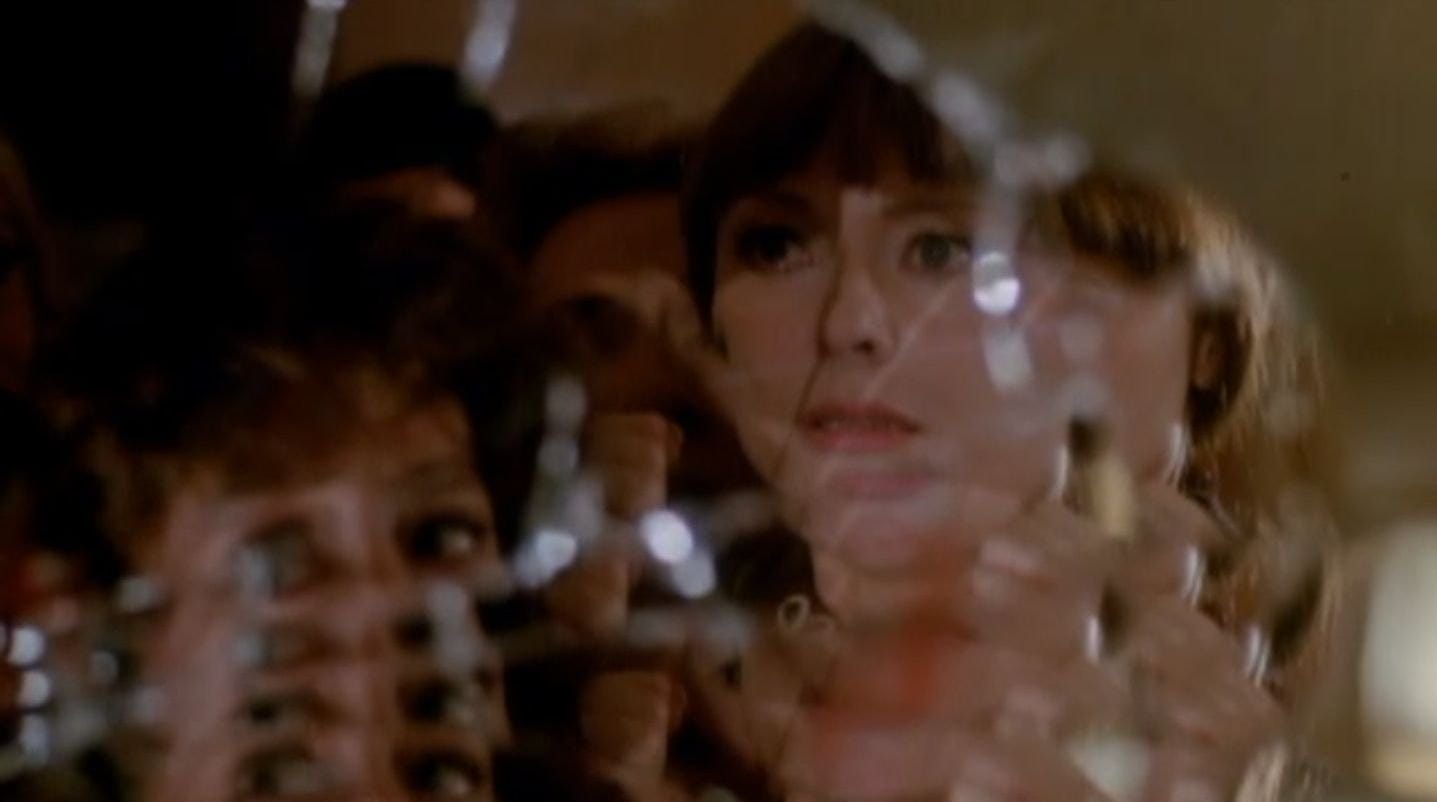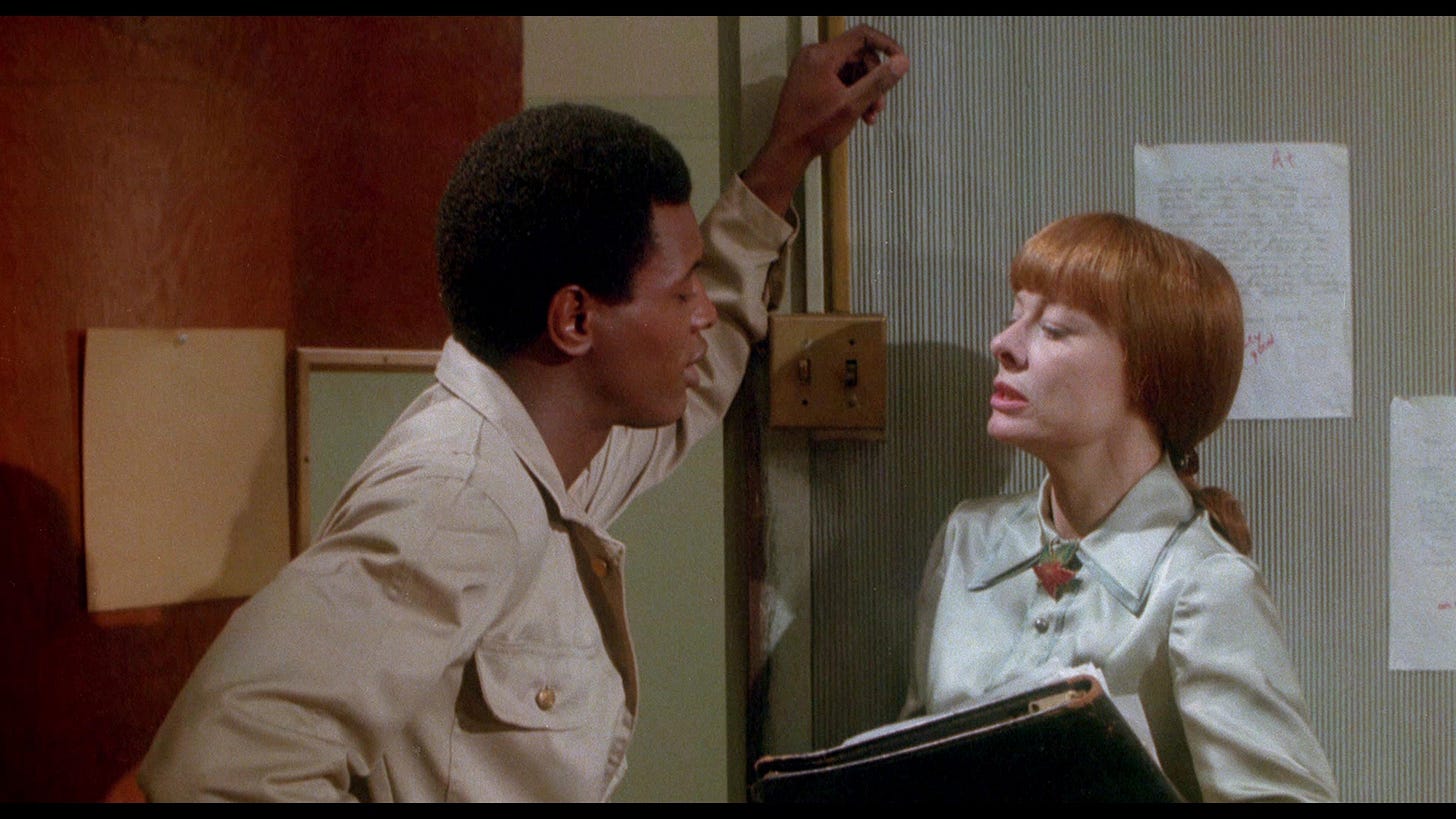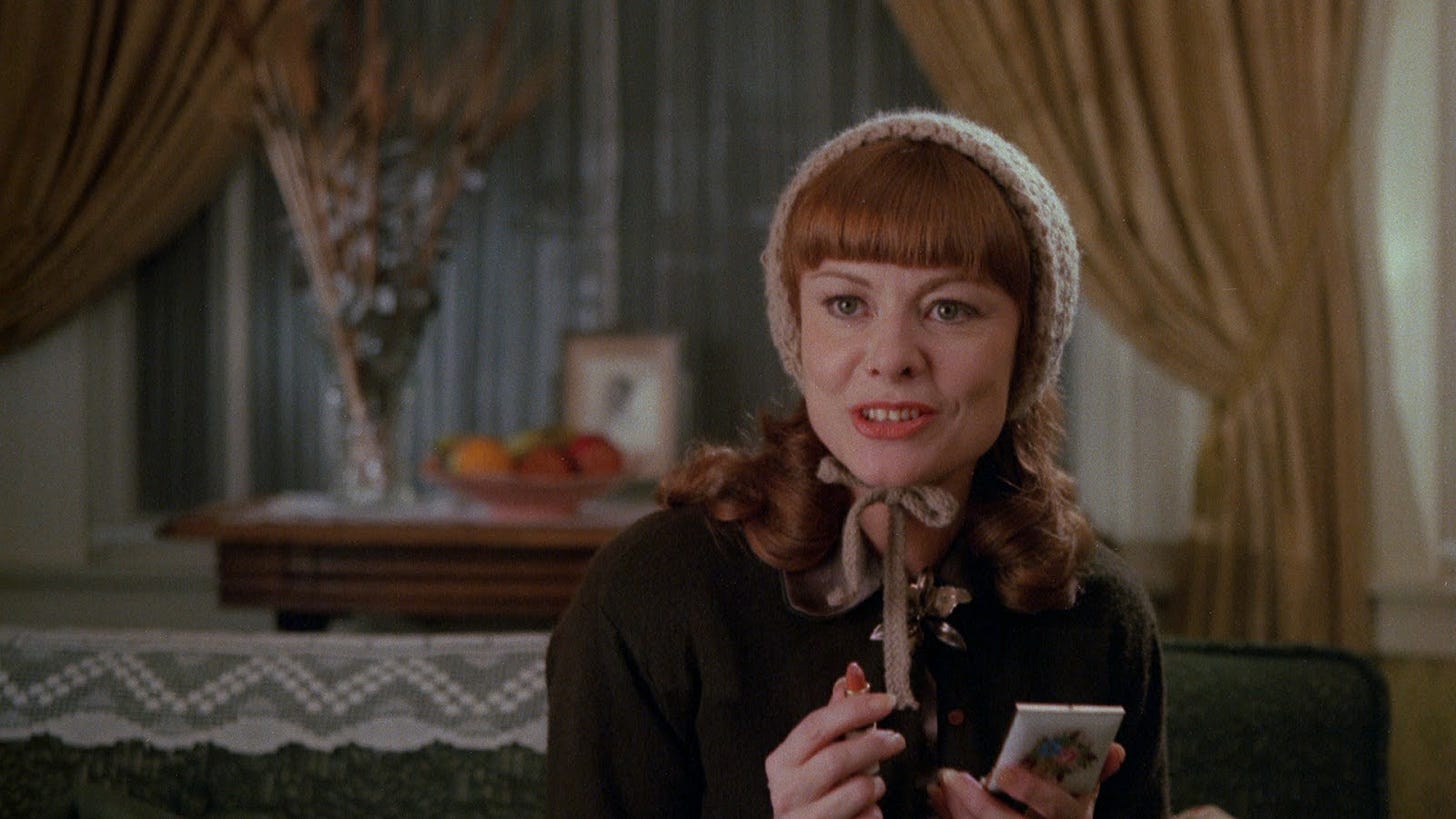Spoilers for Good Luck, Miss Wyckoff (1979). Trigger warnings for discussions of sexual assault, victim blaming and racism.
Based on the 1970 novel by William Inge, Good Luck, Miss Wyckoff is a truly strange film. It’s clear that there are good intentions behind the source material, exploring sexual repression and the sense of liberation when this is overcome, as well as looking at the racial tensions in 1950s America, and yet it's delivered here in such a sordid, melodramatic way as to feel exploitative.
Even its opening scene, in which Evelyn Wyckoff (Anne Heywood) discovers chalk on her driveway insinuating that she fucks black people [a far more grotesque slur is used in the film, which won’t be repeated here], seems designed to repel the audience rather than progress the plot. When it’s repeated at the end, after we have flashed back and learned the wider context of the film, it’s a less shocking moment. To open on those words is shocking for the sake of it.
Evelyn is a high school Latin teacher who, we discover has campaigned widely to eradicate segregation from the school, leading to mixed opinions from the other teachers. She is also a virgin and showing symptoms of premature menopause, a combination of factors that lead to various outbursts. Her doctor (Robert Vaugn) suggests that she find a lover – truly the most 1950s-style advice – and consult with a psychiatrist (Donald Pleasence).
Following their advice, she flirts with a bus driver but stops herself when she finds out he is married. When she decides to go through with it anyway, she discovers that he has left town, leaving his wife and children behind.
Despite this setback, her confidence is returning, and things seem to be back to normal, until a college scholarship student, Rafe Collins (John Lafayette), takes notice of her. He makes lewd comments towards her, but Evelyn feels unable to report it, fearing that his college education will be jeopardised and that it will set race relations in the town back.
It becomes more complex when he viciously assaults her. Now Evelyn fears the public response to not only Rafe but herself; even worse, she finds that she enjoys a part of the humiliation. This abusive relationship appears to satisfy her sexual cravings. In this way, there are clear parallels with Sam Peckinpah’s Straw Dogs (1971), where the assault of Susan George’s character purposefully blurs the line of consent.
Seen with modern eyes, it’s a deeply uncomfortable series of events. While there are perfectly healthy relationships that incorporate humiliation as a kink, this is between consenting parties. Here, that consent is begrudgingly dragged from a woman who has been told by every male around her that all she needs is a fling.
Rafe and Evelyn are eventually discovered when janitors hear her screams during a particularly brutal assault. After this, the writings about Evelyn start to appear and she is ostracised by her friends and the rest of the community.
Before we explore the scene I’ve picked out from this film, it’s interesting to explore the critical reception to Good Luck, Miss Wyckoff. Nearly everything was pulled apart by critics, including Polly Platt’s script and Marvin J. Chomsky’s directing style. Even more bizarrely, the sexual content proved to be controversial and the film was re-edited and released as The Sin, which cut nearly all the assault scenes out, meaning that much of the film doesn’t make sense.
In a strange way, the film probably holds up better today for at least attempting to portray the complexities of human emotions during sexual assaults, and how racial tensions would escalate a situation like this.
It's far from perfect; in fact, at times it’s dreadful, but Heywood gives an excellent performance, really showcasing the range of feelings her character is going through during the film.
It also touches on a rather bleak point. Rafe doesn’t assault Evelyn because of the colour of his skin, he assaults her because of his gender. There are references to the work Evelyn has done to improve life for the black community in the town, and Rafe uses these against her, but it is never implied by the tone of the film that she should not have pushed for these improvements.
The film approaches the difficult situation by showing that every ethnic group has good and bad people. As simplistic as that sounds, it’s a great improvement over how many viewed the situation less than a century ago. In fact, by the end of the film, it’s clear that Rafe gets away with his assaults despite his skin colour and because of his gender. He is a star athlete and when Evelyn approaches the principal (Dana Elcar) at the end of the film, he bluntly says that everyone will forgive Rafe the moment he scores another touchdown.
The issues of race become issues around misogyny. It might have been Rafe’s skin colour, combined with Evelyn’s shame, that stopped the initial crime from being reported but it is the genders of the two leads that result in very different punishments. The principal tells Evelyn that he can recommend her for a job, but will have to tell them what has occurred, as if she should somehow be ashamed. Her friend says that if only Evelyn had talked to her, she might have been able to stop her from doing what she did as if Evelyn ever had a choice.
It is Evelyn who is forced to leave the town. Despite the racism that permeates the start of the film, Rafe remains accepted in the community.
Director: Marvin J. Chomsky
Writer: Polly Platt. Based on the novel of the same name by William Inge
Starring: Anne Heywood, John Lafayette, Donald Pleasence, Robert Vaughn










